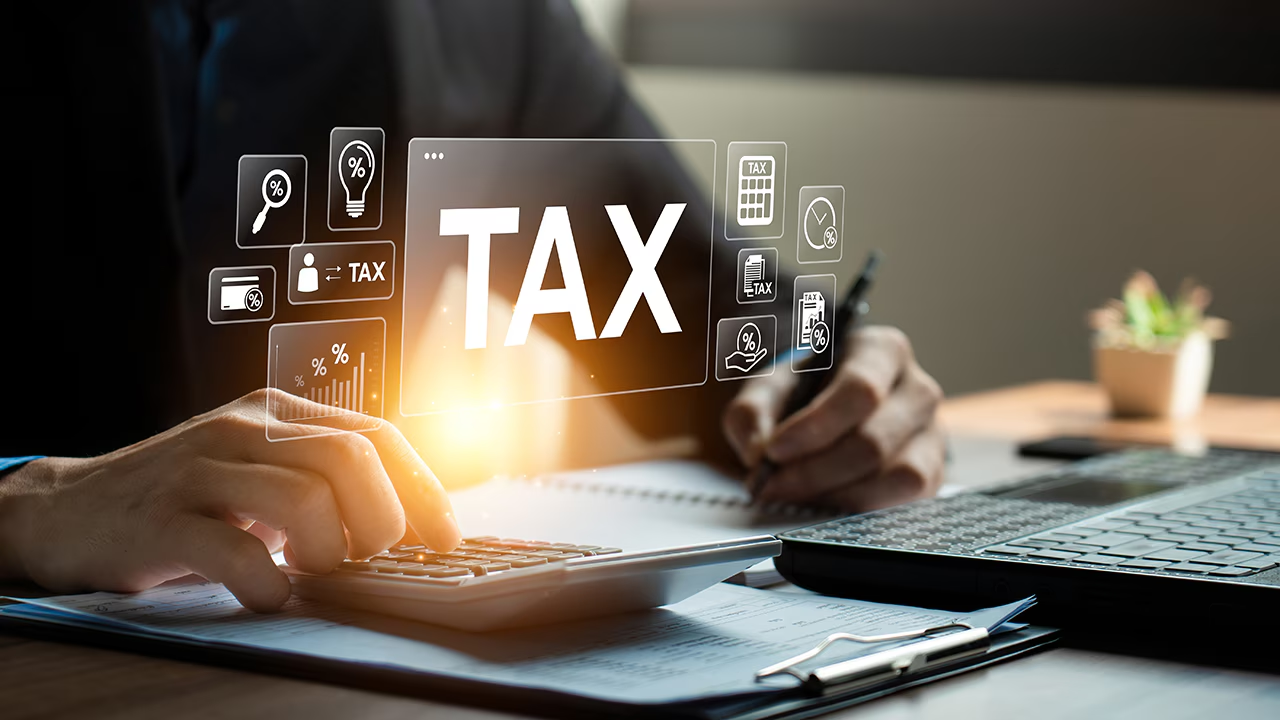Navigating the complex world of cryptocurrency taxation has become increasingly challenging for altcoin investors. With thousands of digital assets trading across multiple exchanges, tracking your portfolio’s performance and calculating accurate tax obligations requires specialized tools. Finding reliable altcoin tax reporting software reviews is crucial for making informed decisions about which platform can best serve your needs.
Whether you’re a casual trader dealing with a few altcoins or a sophisticated investor managing hundreds of cryptocurrency transactions, the right tax software can save you countless hours and potentially thousands of dollars in professional accounting fees. The cryptocurrency tax landscape continues evolving rapidly, making it essential to choose software that stays current with regulatory changes while providing comprehensive support for diverse altcoin portfolios.
Understanding Altcoin Tax Reporting Challenges
The cryptocurrency market extends far beyond Bitcoin and Ethereum, encompassing thousands of alternative coins with unique characteristics and trading patterns. Each altcoin transaction creates potential tax implications, from simple buy-and-sell activities to complex DeFi interactions, staking rewards, and yield farming operations.
Common Tax Reporting Pain Points
Most cryptocurrency investors struggle with several key challenges when preparing their tax returns. Transaction volume often reaches thousands of trades across multiple exchanges, making manual tracking virtually impossible. Different exchanges provide varying levels of transaction history, with some platforms offering limited or poorly formatted data exports.
Price accuracy presents another significant hurdle. Many altcoins lack consistent historical pricing data, especially for tokens traded on smaller exchanges or during specific time periods. This creates complications when calculating cost basis and determining fair market values for tax purposes.
Cross-platform tracking compounds these difficulties. Modern crypto investors often use multiple exchanges, decentralized platforms, and wallet services. Consolidating this information into a coherent tax report requires sophisticated software capable of handling diverse data sources and transaction types.
Top Altcoin Tax Reporting Software Platforms
CoinTracker: Comprehensive Portfolio Management
CoinTracker stands out among altcoin tax reporting software options for its user-friendly interface and extensive exchange integrations. The platform supports over 300 cryptocurrency exchanges and 8,000+ digital assets, making it particularly valuable for altcoin enthusiasts.
Key Features:
- Automatic transaction importing from major exchanges
- Advanced cost basis calculations using FIFO, LIFO, and other methods
- Real-time portfolio tracking and performance analytics
- Support for DeFi protocols and yield farming activities
- Integration with popular tax preparation software
Pricing Structure: CoinTracker offers a freemium model with limited transactions for basic users. Premium plans start at $199 annually for up to 1,000 transactions, scaling to enterprise solutions for high-volume traders.
Pros and Cons: The platform excels in automation and ease of use, requiring minimal manual input for most users. However, some advanced traders find the reporting customization options limited compared to specialized accounting software.
Koinly: Advanced Tax Optimization Features
Koinly has gained recognition for its sophisticated approach to cryptocurrency tax calculations and comprehensive support for altcoin transactions. The platform emphasizes accuracy and provides detailed audit trails for all calculations.
Notable Capabilities:
- Support for over 400 exchanges and blockchain networks
- Advanced transaction categorization and tagging systems
- Tax optimization suggestions to minimize liability
- Comprehensive audit reporting and documentation
- Multi-country tax law compliance features
Cost Analysis: Koinly operates on a transaction-based pricing model, with plans ranging from $49 for basic reporting to $399+ for unlimited transactions. The platform offers good value for moderate to high-volume traders.
TaxBit: Enterprise-Grade Solutions
TaxBit targets serious cryptocurrency investors and institutions with enterprise-level features and compliance tools. The platform provides sophisticated reporting capabilities designed for complex altcoin portfolios.
Advanced Features:
- Institutional-grade security and compliance measures
- Advanced DeFi transaction processing capabilities
- Customizable reporting templates and formats
- API access for automated data processing
- White-label solutions for businesses and tax professionals
Essential Features for Altcoin Tax Software

Exchange Integration Capabilities
Modern altcoin tax reporting software must seamlessly connect with numerous cryptocurrency exchanges and trading platforms. The best solutions offer API-based integrations that automatically import transaction data, eliminating manual entry errors and saving significant time.
Look for software supporting major exchanges like Binance, Coinbase, Kraken, and Bittrex, as well as popular decentralized exchanges such as Uniswap and SushiSwap. Comprehensive coverage ensures all your altcoin transactions are captured regardless of where they occurred.
Accurate Price Data Sources
Reliable historical pricing data forms the foundation of accurate tax calculations. Quality software aggregates price information from multiple sources, providing accurate valuations even for obscure altcoin tax reporting software reviews history.
The most effective platforms maintain extensive databases covering thousands of cryptocurrencies across different time periods. They also handle edge cases like tokens that ceased trading or underwent significant changes in market structure.
Cost Basis Calculation Methods
Different cost basis calculation methods can significantly impact your tax liability. Professional-grade software supports multiple approaches including First-In-First-Out (FIFO), Last-In-First-Out (LIFO), and Specific Identification methods.
Advanced platforms allow you to compare different calculation methods and choose the most advantageous approach for your situation. This flexibility becomes particularly valuable for long-term altcoin holders with varying acquisition costs.
Specialized Altcoin Reporting Considerations
DeFi and Yield Farming Transactions
Decentralized finance activities create complex tax scenarios that traditional software often struggles to handle. Modern altcoin tax reporting solutions must properly categorize yield farming rewards, liquidity pool tokens, and governance token distributions.
The best platforms automatically recognize common DeFi protocols and apply appropriate tax treatment to different transaction types. This includes handling impermanent loss calculations, staking rewards, and complex multi-step transactions common in DeFi environments.
NFT and Gaming Token Support
The expanding universe of non-fungible tokens and gaming cryptocurrencies presents unique reporting challenges. Effective software must handle these assets appropriately, recognizing their distinct tax treatment compared to traditional altcoins.
Look for platforms that can process NFT purchases, sales, and royalty payments while properly categorizing gaming tokens and in-game asset transactions. These capabilities become increasingly important as these markets continue growing.
Comparing Altcoin Tax Software Pricing Models
Subscription-Based Platforms
Most altcoin tax reporting software operates on annual subscription models with pricing tiers based on transaction volume or feature access. Entry-level plans typically accommodate casual traders with under 100 transactions, while premium tiers support unlimited transactions and advanced features.
Consider your annual transaction volume when evaluating pricing options. Some platforms charge per transaction above certain thresholds, which can become expensive for active traders. Others offer unlimited transactions at higher subscription levels, providing better value for frequent traders.
One-Time Purchase Options
Certain specialized tax software offers perpetual licenses with optional annual updates. These solutions appeal to users who prefer owning their software rather than paying recurring subscriptions.
However, cryptocurrency tax law changes frequently, making regular updates essential. Evaluate whether one-time purchase options include sufficient update provisions to maintain compliance over time.
Security and Privacy Considerations
Data Protection Standards
Cryptocurrency tax software handles extremely sensitive financial information requiring robust security measures. Look for platforms implementing enterprise-grade encryption, secure data transmission protocols, and comprehensive access controls.
The best solutions never store exchange API keys or private wallet information permanently. They also provide options for local data storage and processing to maintain maximum privacy control.
Compliance and Audit Support
Professional-grade altcoin tax reporting software provides comprehensive audit trails and documentation supporting all tax calculations. This documentation becomes crucial if tax authorities question your reported cryptocurrency income or deductions.
Quality platforms generate detailed reports showing exactly how they calculated each figure, including source transactions, price data, and methodology explanations. This transparency helps defend your tax positions if challenged.
Integration with Tax Preparation Software
Popular Tax Software Compatibility
The most effective altcoin tax reporting software reviews integrate seamlessly with mainstream tax preparation software like TurboTax, TaxAct, and professional accounting platforms. This integration eliminates manual data transfer and reduces the risk of transcription errors.
Look for platforms offering direct export capabilities in formats compatible with your preferred tax software. Some solutions provide specialized plugins or extensions that automate the entire transfer process.
Professional Accountant Collaboration
Many cryptocurrency investors work with tax professionals who specialize in digital asset reporting. The best altcoin tax software supports collaborative workflows, allowing secure data sharing with accounting professionals.
These features include professional-grade reporting formats, detailed calculation explanations, and secure client portals that facilitate accountant review and approval processes.
User Experience and Support Quality
Interface Design and Usability
Complex tax calculations require intuitive software interfaces that don’t overwhelm users with unnecessary complexity. The best platforms balance comprehensive functionality with clean, logical user experiences.
Look for software offering guided setup processes, clear navigation structures, and helpful explanations of complex tax concepts. Quality platforms make sophisticated calculations accessible to users without extensive tax knowledge.
Customer Support and Educational Resources
Cryptocurrency taxation involves numerous edge cases and complex scenarios requiring expert guidance. Top-tier altcoin tax reporting software provides comprehensive support through multiple channels including live chat, email, and phone support.
The best platforms also maintain extensive educational resources including video tutorials, detailed guides, and active community forums where users can share experiences and solutions.
Also Read: Ultimate Guide Purchase Altcoins via PayPal Payment Method
Future-Proofing Your Tax Software Choice

Regulatory Adaptation Capabilities
Cryptocurrency tax regulations continue evolving rapidly across different jurisdictions. Choose software with demonstrated ability to adapt quickly to regulatory changes and maintain compliance across multiple countries.
Look for platforms with dedicated compliance teams that monitor regulatory developments and implement necessary changes promptly. This proactive approach ensures your tax reporting remains accurate as laws evolve.
Technology Integration Trends
The cryptocurrency ecosystem constantly introduces new technologies, protocols, and asset types. Select altcoin tax reporting software with flexible architectures that can accommodate future innovations without requiring complete platform changes.
Consider platforms with active development roadmaps and regular feature updates that demonstrate ongoing investment in staying current with industry trends.
Making Your Final Software Selection
Trial Period Evaluation
Most quality altcoin tax reporting platforms offer trial periods or money-back guarantees allowing thorough evaluation before committing to annual subscriptions. Take advantage of these opportunities to test software with your actual transaction data.
During trial periods, focus on accuracy verification by spot-checking calculations against manual computations for sample transactions. Also evaluate user experience factors like import speed, interface intuitiveness, and report generation capabilities.
Long-Term Cost Considerations
Beyond initial subscription costs, consider long-term expenses including potential transaction overage fees, premium feature upgrades, and professional support services. Some platforms charge additional fees for features like amended return support or priority customer service.
Calculate total cost of ownership over multiple years, factoring in your expected transaction volume growth and evolving reporting needs. This analysis helps identify platforms offering the best long-term value proposition.
Conclusion
Selecting appropriate altcoin tax reporting software significantly impacts both your tax compliance accuracy and the time invested in preparation processes. The platforms reviewed here represent the current market leaders, each offering unique strengths for different investor profiles and needs.
For casual altcoin traders with straightforward portfolios, user-friendly options like CoinTracker provide excellent value and ease of use. More sophisticated investors managing complex DeFi activities and diverse altcoin holdings benefit from advanced platforms like Koinly or TaxBit that offer comprehensive feature sets and detailed customization options.
The cryptocurrency tax landscape will continue evolving, making it crucial to choose software with strong track records of regulatory adaptation and ongoing development investment. Don’t let another tax season catch you unprepared – start evaluating these altcoin tax reporting software reviews today and implement a solution that meets your specific needs and trading patterns.

